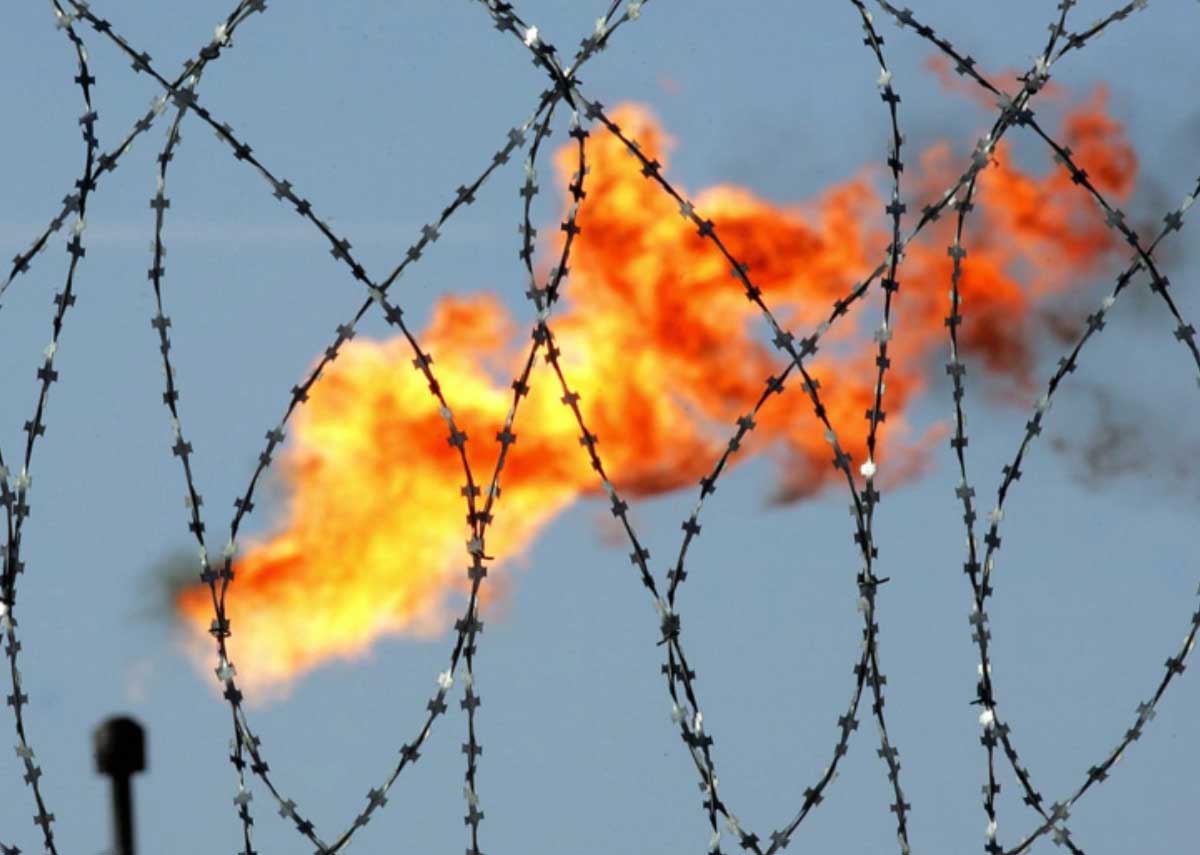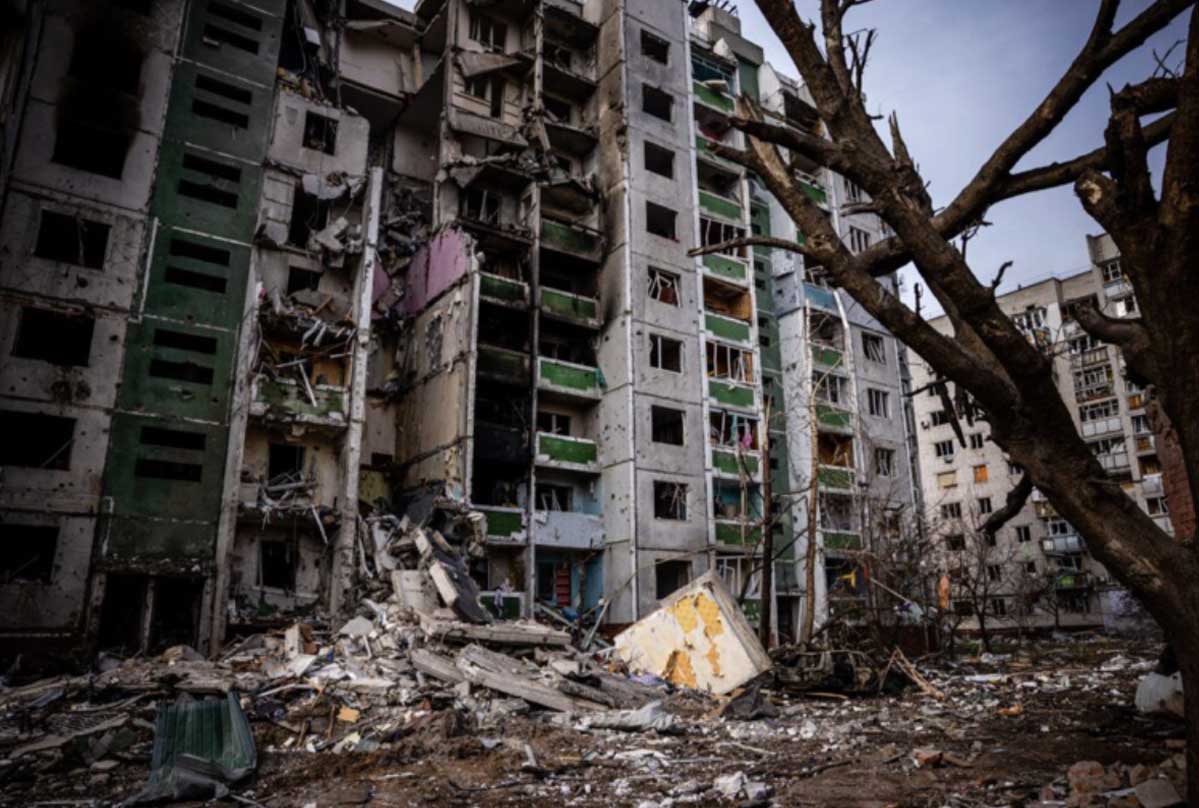Khodorkovsky: Targeting Putin’s oil and gas no substitute for weapons Ukraine needs
It is naive to think that a dictator on the rampage will be brought into line through fluctuations in oil prices, rather than by Ukrainian military victory.

I applauded the good intentions of Western countries when they introduced a price cap on Russian oil earlier this week, and other measures designed to target the Russian oil industry. It is vital to weaken Vladimir Putin’s ability to wage his barbaric war against Ukraine and a robust policy towards Russian energy is an important part of that effort.
I do, however, question whether such complex measures are likely to achieve that goal or, through unintended consequences, undermine it.
I recently spoke at a conference on the energy industry attended by several leading specialists from investment banks and energy companies. I asked my audience a question that has been troubling me for months: If the aim is to reduce the amount of money coming into Putin’s military budget and encourage an end to Western reliance on Russian hydrocarbons, why do we need complicated mechanisms like a price cap, and not simply agree to impose duties on Russia for exporting its oil?
Imposing duties on Russian oil exports would be simple, understandable and easily administered. It would increase the Kremlin’s expenditure without the host of unpredictable consequences on global energy markets that a price cap might trigger. Some of those consequences might end up being exploited by Putin, to the detriment of the democracies attempting to subdue him. The complexity of a price cap raises a slew of issues and opens more than a few potential loopholes.
When I posed the question at the conference, however, I got no answer. I never do.
There is a notion that the price cap will help bring China and India, who have been willing buyers of Putin’s oil as Western nations seek to reduce their imports of it, into line with international sanctions; but this strikes me as unlikely. I would caution against policies that rely on the cooperation of powers that have been at best unreliable in the fight against Putin’s barbarism and at worst complicit in it. These powers are likely to benefit because they will end up paying Russia at a discount to the global price at which the West will buy from other suppliers.
A possible boom in global corruption will follow, as the shipping industries and service providers face attempts to get round the cap, through falsified documents and other tricks. Enforcing the cap will take a monumental diplomatic and administrative effort.
And meanwhile, Putin’s oil will continue to flow and the money roll in.
We need thought-through policy not knee-jerk reactions based on the emotional need to be seen to be doing “something.” We need to be clear in our analysis of how much Putin will feel energy sanctions at all. Realistically, hydrocarbon exports account for only around 20 percent of Russia’s GDP and even less when measured in terms of Purchasing Power Parity. But when we look at Russia’s federal budget, from which the money for the war is being drawn, the number is more like 50 percent.
That is, out of every dollar paid for oil, gas or coal, 50 cents is turned into the bombs and bullets killing tens of thousands of Ukrainians, destroying Ukrainian cities, and giving rise to Europe’s latest refugee crisis.
So, what should we be doing about this?

First, let’s be clear: It is not about the cost of a barrel but the size of Putin’s profit. The price cap focuses only on the former, but it is vital not only to reduce the turnover of Putin’s oil industry with a partial boycott but also to attack its profits by increasing its expenditures. Duties would achieve this. So too would technological sanctions — by preventing the sale of technological components Russia needs for hydrocarbon production, we would increase its costs for producing oil and gas.
Second, we need to realize that the hydrocarbons market is global and that a significant restriction on purchases from one supplier, without reaching an understanding with the other suppliers — not exactly a democratic and cooperative club of nations — and without reducing consumption, leads to price increases that almost completely compensate the reduction in supply. This is what we have been observing since the start of the year. A price cap, though intended to reduce global prices, might have the opposite effect.
Third, without a decisive military defeat in Ukraine, Putin will continue to use energy blackmail. It would be naive to think that a dictator on the rampage will be brought into line through fluctuations in the price he gets for his oil, rather than by Ukrainian military victory. Policies targeting his hydrocarbons can be useful but are no substitute for providing Ukraine with the weapons, hardware and training it needs to get the job done.
In both the short and long term, the West needs to develop its energy self-sufficiency, not tinker with the terms of its dependency on dictatorships. This is both a moral and practical necessity.
On this too, ordinary people and even political leaders need a more comprehensive understanding of what constitutes energy supply. It is more than electricity alone. It is heat and fuel for vehicles. It is “secondary” energy-reliant products too, such as nitrogen fertilizers, steel, or aluminum, for which energy accounts for the greatest share of production costs.
“Green energy” currently contributes some 15-20 percent at most to European energy needs. The rest is coal, gas, oil, uranium, and timber. To increase the contribution of solar and wind power up to even 30 percent of Europe’s overall energy supply is an ambitious but worthy challenge. This is not just an industrial challenge but a cross-societal one, requiring solar panels on roofs, local wind generators, heat pumps and audits of the insulation of every building. It is a monumental task and a fantastic opportunity for Europe.
But it is not enough. If Europe really wants to stop cadging energy from dictators, then nuclear power and LNG will have to be part of the mix. LNG would act as a “transitional bridge” in the period before the grand objective of achieving energy independence is realized. As well as undermining Putin and other tyrants, decarbonizing the economy would bring the bonus of addressing the climate crisis.
Can Europe do this? I strongly believe 350 million people, in the continent that has shaped our civilization, can achieve anything they set their minds to. The question is: Will they? And to this, I do not yet have an answer.
Mikhail Khodorkovsky, a former political prisoner and CEO of Yukos Oil company, is the author of “The Russia Conundrum: How the West Fell for Putin’s Power Gambit — and How to Fix It.”
This article was first published in the Politico Europe



